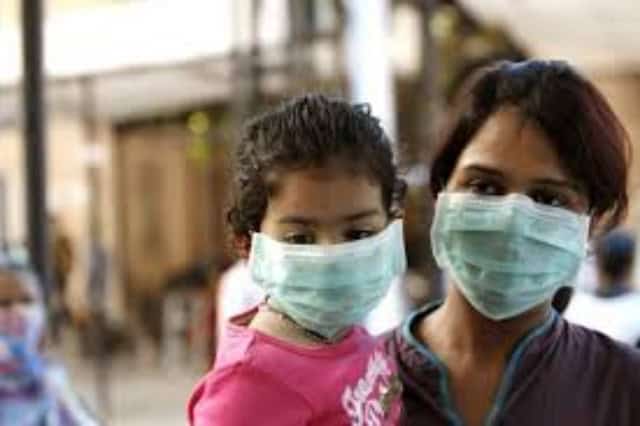ISLAMABAD – The Pakistan Institute of Medical Sciences (PIMS) on Wednesday said five confirmed and 20 suspected swine flu (H1N1) patients had been brought to the hospital.
According to an official of PIMS, all the patients with having acute respiratory distress syndrome had been kept in isolation.
Dr Khawar Sultan said that the hospital was actively dealing with the swine flu patients. Both the suspected and confirmed patients were kept in a special infection control isolation ward.
He said ventilatory support was provided to the patients in case of need. N95 masks were available at PIMS while Executive Director Dr Raja Amjad Mehmood had provided swine flu vaccines to all doctors and hospital staff free of cost, he added.
He said the swine flu, which was also called H1N1 influenza, was caused by H1N1 influenza virus, a subtype of influenza A virus. H1N1, which was discovered in 2009, caused epidemic every winter, he added.
He said children, pregnant women, elderly people and patients with chronic diseases having weak immunity were at the high risk of the virus.
Its symptoms included flu, cough, sore throat, fever, headache, body pain, diarrhea and vomiting, he said, adding some patients suffered from acute respiratory distress and needed ventilatory support.
Dr Khawar Sultan said the patients with swine flu should be kept in isolation wards while all health care providers, including doctors, nurses and paramedics, must be well trained regarding infection control measures.
They must use special mask (N95) while dealing with such patients as an ordinary mask was not enough to prevent infection, he added.
Dr Khawar said the attendants should not be allowed in patients’ area while all patients must be closely monitored and if any patient developed respiratory distress he or she must be put on a ventilator.
He said Oseltamivir and Zanamivir were anti vital drugs, which were used for treatment and prevention of the infection. Everyone, especially children, elderly people, people working on public places and health care providers should be vaccinated before winter so that the infection could be prevented, he added.
















